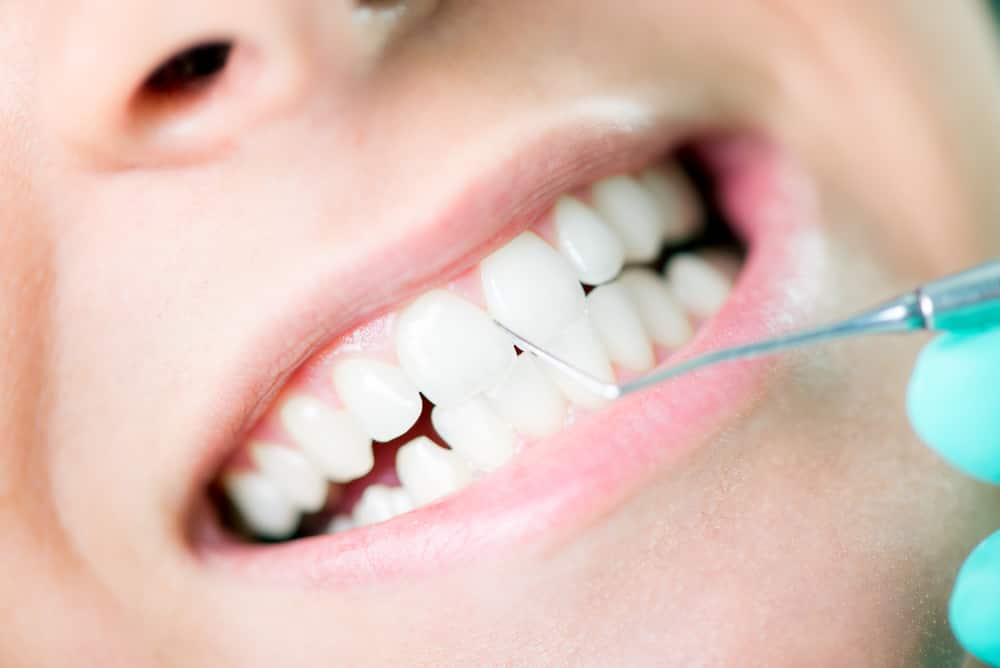Dental cleanings are like taking your car in for a tune-up; they are essential for keeping your teeth healthy and functioning properly.
It is important to understand what dental cleanings are, why they are important, how long they take, and what to expect when you go in for a cleaning.
This article will explore the details of dental cleanings and provide advice on how to prepare for and maintain your dental health.
What Is Dental Cleaning?
Dental cleaning, also known as prophylaxis, is a procedure performed by a dental professional to remove plaque and stains from the teeth. It is important to maintain optimal oral health and prevent periodontal disease and tooth decay. During a dental cleaning, the dental professional will use special instruments to remove plaque and calculus from the surface of the teeth, as well as in between the teeth and gums. A deep cleaning may also be done if there is evidence of gum disease, which requires a more thorough cleaning. A fluoride treatment may also be provided after the cleaning to help strengthen the teeth and prevent future decay.
A dental cleaning appointment typically lasts about 45 minutes, and during this time, the dental professional will inspect the teeth, gums, and mouth for any signs of disease. They will then use gritty toothpaste and special instruments to remove plaque and calculus. They may also provide additional treatments, such as a fluoride treatment, to strengthen the teeth and prevent decay. After the cleaning, the dental professional may provide recommendations for maintaining optimal oral health, such as brushing and flossing regularly.
Why Is It Important?
The importance of a regular dental hygiene routine cannot be understated. Visiting the dentist for a professional dental cleaning appointment is essential for maintaining oral health and preventing plaque and tartar buildup. Dental procedures such as scaling and polishing with an ultrasonic scaler are important for removing stubborn deposits and restoring the tooth enamel. Regular cleanings can help to prevent periodontal disease and other oral health issues.
Dental cleanings are essential for maintaining good oral health. With regular cleanings, plaque and tartar can be removed before they cause significant damage to the teeth and gums. Professional dental cleanings can also help to remove any hard-to-reach areas that may have been missed during routine brushing and flossing. Regular cleanings can help to prevent cavities, gum disease, and other oral health issues.
When it comes to dental cleanings, the amount of time you should allocate depends on individual needs. Generally, a dental cleaning appointment should last between 30 minutes to an hour. However, if the patient has not had regular cleanings, the appointment may take longer.
How Long Does the Dental Cleaning Take?
A professional dental cleaning appointment typically lasts between 30 minutes and one hour. During this time, the dentist or hygienist will work to remove plaque and tartar that has built up on your teeth. Plaque is a sticky substance that can cause tooth decay, gum disease, and even tooth loss. The hygienist will also look for signs of gum disease, such as redness, swelling, and bleeding. During the dental cleaning, the hygienist may also provide advice on how to improve your dental care routine.
In some cases, the dentist may recommend specialised cleanings, such as a deep cleaning appointment or a periodontal cleaning, if they believe there is a higher risk of gum disease. These types of cleanings may take longer than a regular professional teeth cleaning appointment, as they involve a more thorough cleaning and examination of the gums.
Dental cleanings are an important part of maintaining good oral hygiene and overall health. Having a professional cleaning every six months is highly recommended to help prevent plaque buildup and ensure that any signs of gum disease can be caught and treated early.
What Can You Expect?
At a professional dental cleaning appointment, it is possible to expect a thorough examination and removal of plaque and tartar. During the cleaning process, the dentist may use special tools to measure the depth of periodontal pockets and to remove plaque and tartar.
In addition, the dental exam process may include a visual inspection of the teeth, gums, and other areas of the mouth, and X-rays may be taken for further diagnosis. Furthermore, the family dentist may recommend deep teeth cleaning, or debridement cleaning, for patients with severe gum disease.
Overall, the dental cleaning process may take anywhere from 30 minutes to an hour, depending on the complexity of the patient’s dental condition. It is important to have regular dental checkups and oral exams to ensure good oral health and to detect any potential problems early on.
How to Prepare for a Cleaning
Prior to a dental appointment, preparation can help ensure success. Before a dental cleaning, it is important to review one’s gum tissue and bone loss, as well as any sensitive teeth or built-up plaque. Additionally, soft tissue should be examined to ensure that all health needs are met. Regular brushing and dental visits are essential for tooth health, and dental cleaning takes approximately one hour. Furthermore, periodontal maintenance cleanings take at least two visits, and regular teeth cleanings should take place every six months.
To prepare for a teeth cleaning appointment, one should consult with their dentist to determine the type of cleaning that is right for them. It is also important to brush and floss the day before the cleaning. Eating a healthy diet and avoiding sugary foods and drinks can also help to keep teeth healthy.
Tips for Maintaining Your Dental Health
Maintaining one’s dental health is essential for overall well-being. Regular dental visits, combined with proper oral hygiene habits, are important elements of preventive health care. A dental examination should include a review of medical history and a physical examination of the teeth, gums, and soft tissues. During the exam, the dentist will check for any signs of oral health issues, including cavities, gum disease, and abnormalities in the mouth. The dentist may also take X-rays to check for decay beneath the surface of the teeth or to detect any issues with the tooth roots.
During a dental cleaning, the dentist will use a special instrument to remove plaque and tartar buildup from the teeth. In cases of active gum disease, the dentist may also perform a scaling procedure to remove plaque and bacteria from below the gum line. For those with dental anxiety, the dentist can discuss steps that can be taken to ensure a safe and comfortable procedure.
Key Takeaways
In conclusion, dental cleaning is a critical part of maintaining oral health. It can help to prevent and detect serious problems, and it is an important part of overall health.
To get the most out of a dental cleaning, it is important to allocate the appropriate amount of time for the procedure. By preparing for the cleaning, understanding what to expect, and making time for regular cleanings, it is possible to maintain dental health.
As with many aspects of life, dental health can be seen as a journey, with each cleaning marking a new milestone on the path to a healthier future.
If you are looking for a dental practice in Ashfield, NSW, that provides outstanding dental cleanings and other services, look no further than Ashfield Family Dental. Our team of experienced professionals is committed to providing state-of-the-art care and superior patient service. Schedule your appointment today and take the first step in your journey to a healthier, brighter smile.




